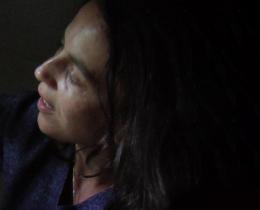The Omega Center for Sustainable Living has been working with the growing Northeastern permaculture community over the last several years, and recognizes the need to support those that are often underrepresented in the field. In 2015, we hosted our first Permaculture Teacher Training for Women with permaculture teachers Lisa DePiano and Pandora Thomas. The course focused on increased inclusion, and support of leadership and perspectives from women of diverse backgrounds.
By growing their leadership skills in a supportive environment, participants from the Permaculture Teacher Training for Women course have expanded upon their meaningful work in many ways. Here are a few inspiring examples.
Sharing a Passion for Permaculture
Since the training Claire Core has been working on community farm projects in Moab, Utah. Using community design and mapping sessions, Core and some of her friends installed a pollinator garden on the grounds of local nonprofit thriftstore Wabi Sabi. She has also been working on a project called “CommuniTea Garden,” turning a vacant and weedy lot into an open pocket park for people to walk through, harvest fruit, and relax in the middle of town. Core is currently finishing an interdisciplinary degree from Utah State University in ecologically based community development.
“I gained so much confidence, skill, and practice from our Women's Permaculture Teacher's Training. Recently, I've done a few presentations that greatly benefited from our training together. I have led quite a few community permaculture classes, presented at conferences, and in general, feel more able to express my passion for permaculture,” said Core.
Focusing on Diversity & Inclusion
Rachel Jackson has been in Costa Rica working at Rancho Mastata, where she leads 5-day sustainable homestead design workshops and coteaches their permaculture design course.
“The teacher training helped crystallize the importance of diversity and inclusivity in our programs and the need to actively create a welcoming space.” said Jackson. This inspired her to start a Central American scholarship fund at Rancho Mastatal to increase access for Costa Ricans. She was able to help raise money and actively recruit eight Central American students in three sustainability courses and a yearlong apprenticeship.
"The teacher training has helped me to better reach students with a variety of backgrounds and learning styles, something that is always valuable but particularly important when working across cultures and language," said Jackson.
Building Effective Relationships
Kathy Puffer has used her experience from the training to become a more effective agent in the nonprofit Solar CITIES Inc., where she is cofounder and a board member.
“The social permaculture aspect of the course empowered me to be a more effective communicator in our nonprofit, be more thoughtful of past and present indigenous people, and craft opportunities for socially disadvantaged people to drive a project forward," said Puffer.
Puffer worked with families and teachers of Heart in Haiti school to build the school’s Solar CITIES style IBC biodigster, complete with a gas storage system, stove, and bike powered food grinding system. She also helped earn a grant to return to Haiti to build a larger digester at the school to run a generator and make compost tea for the school garden. This allows children to bring manure from home in a bucket to the digester, and receive biogas to return home for cooking. The goal of Puffer’s biogas program is to create Haiti’s first biogas educational hub, where the community can learn how to use the simple technology for their own businesses.
Since the training, Puffer says, “Solar CITIES Inc. has blossomed. Creating group agreements that I learned about in class has helped our relationships and our ability to be effective.”



